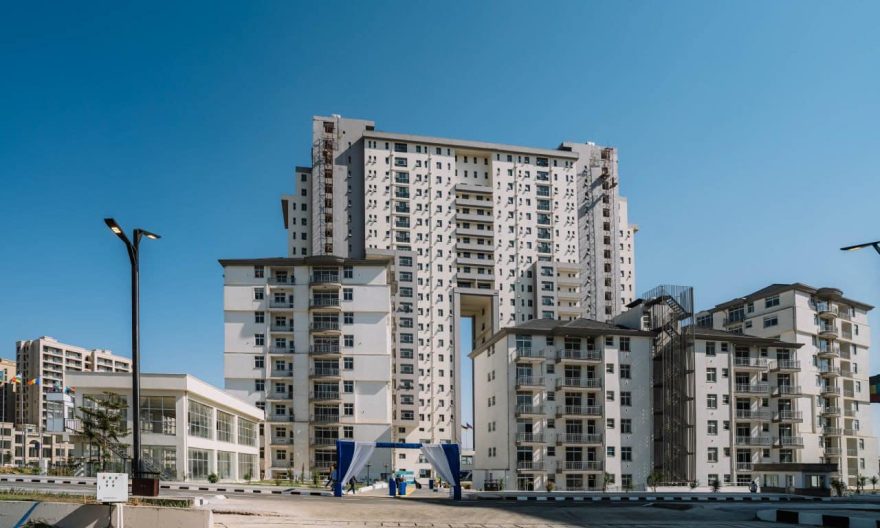
Addis Ababa, the vibrant capital of Ethiopia, serves as a crucial hub for business, culture, and diplomacy in East Africa. The city has seen significant growth in its hospitality industry, driven by an increasing number of international visitors and the demand for modern convention facilities. This growth reflects Ethiopia’s rich heritage and its aspirations to position itself as a leading destination for conferences and events.
The hospitality industry in Addis Ababa has expanded rapidly over the past decade, with a diverse range of accommodations available to suit various budgets and preferences. From luxury hotels to budget-friendly guesthouses, the city caters to both business travelers and tourists. Notable establishments like the Sheraton Addis, Hilton Addis Ababa, and Radisson Blu offer world-class amenities, including fine dining, wellness centers, and conference facilities.
In addition to traditional hotels, boutique hotels and eco-lodges are gaining popularity, appealing to travelers seeking a unique experience that reflects Ethiopian culture and hospitality. The city’s hospitality sector also emphasizes the importance of local cuisine, with many restaurants serving traditional dishes that highlight Ethiopia’s culinary heritage.
Addis Ababa is home to several modern convention centers that play a critical role in hosting local and international events. The African Union Conference Center and the United Nations Economic Commission for Africa (UNECA) are prominent venues, attracting global conferences, workshops, and summits. These centers are equipped with state-of-the-art technology and facilities, providing essential support for large-scale events.
The Millennium Hall and the Ethiopian National Museum also serve as popular venues for exhibitions, cultural events, and private functions. These locations not only accommodate conferences but also showcase Ethiopia’s rich history and cultural diversity, offering visitors a glimpse into the nation’s heritage.
The growth of the hospitality industry and convention centers in Addis Ababa has a significant economic impact. It creates jobs, stimulates local businesses, and contributes to the overall development of the tourism sector. As the city continues to attract international events, it positions itself as a key player in the regional and global markets.
Despite its growth, the hospitality industry in Addis Ababa faces challenges, including infrastructure limitations, fluctuating economic conditions, and the need for skilled labor. However, these challenges also present opportunities for investment and development. With ongoing efforts to enhance infrastructure and training programs, the city is poised to elevate its status as a premier destination for conventions and tourism.
Addis Ababa’s hospitality industry and convention centers are at the forefront of the city’s development, reflecting Ethiopia’s rich culture and potential as a global meeting destination. As the city continues to grow and evolve, it remains committed to providing exceptional hospitality and modern facilities, ensuring that visitors experience the warmth and richness of Ethiopian culture. The future looks promising for Addis Ababa as it strives to become a leading hub for conferences, events, and tourism in Africa.
Addis Ababa, the bustling capital of Ethiopia, is at a pivotal moment in its development as an urban tourism destination. With recent reforms and significant investments in infrastructure, including the construction of modern convention centers and museums, the city is poised to enhance its appeal to both domestic and international tourists.
In recent years, Ethiopia has undergone substantial political and economic reforms aimed at promoting growth and attracting foreign investment. Addis Ababa, as the political and cultural heart of the nation, has benefited from these changes. The government has prioritized the construction of modern facilities that support urban tourism, including:
The establishment of state-of-the-art convention centers, such as the African Union Conference Center and the United Nations Economic Commission for Africa (UNECA), has positioned Addis Ababa as a prime location for international conferences and events. These venues are equipped with advanced technological capabilities and can host large gatherings, drawing attention from global organizations, NGOs, and businesses.
Addis Ababa is also investing in cultural institutions, such as the Ethiopian National Museum and the newly constructed Ethiopian Museum of Modern Art. These museums provide visitors with insights into Ethiopia’s rich history, diverse cultures, and artistic heritage. The addition of interactive exhibits and educational programs can further enhance the visitor experience, making the city a cultural hub.
Urban tourism in Addis Ababa offers a unique combination of historical, cultural, and modern attractions. The city’s vibrant atmosphere, coupled with its rich heritage, provides numerous opportunities for tourists to engage with local culture.
Addis Ababa is renowned for its diverse culinary scene, offering traditional Ethiopian dishes like injera and doro wot. Culinary tours can attract food enthusiasts eager to explore local flavors.
Events such as Enkutatash (Ethiopian New Year) and Timkat (Epiphany) provide immersive experiences for visitors, highlighting the city’s vibrant traditions.
To fully realize the potential of urban tourism in Addis Ababa, several areas need to be strengthened: While convention centers and museums have been constructed, further improvements in transportation infrastructure are crucial. Expanding public transport options, such as buses and light rail systems, will enhance accessibility for tourists and ease congestion in the city.
Investments in the hospitality sector are essential to accommodate the growing number of tourists. Expanding the range of accommodations—from luxury hotels to budget-friendly options—will cater to diverse traveler preferences. Additionally, training programs for hospitality staff can improve service quality and visitor satisfaction.
A comprehensive marketing strategy is needed to promote Addis Ababa as a tourist destination. Highlighting unique experiences, cultural richness, and upcoming events through digital marketing, social media, and partnerships with travel agencies can attract a wider audience.
Engaging local communities in tourism development ensures that benefits are distributed equitably. Encouraging local artisans, restaurants, and tour guides to participate in the tourism sector can create authentic visitor experiences while supporting local economies.
Implementing sustainable tourism practices is vital for preserving the city’s cultural and natural resources. Encouraging eco-friendly initiatives, such as green hotels and responsible tourism practices, will attract environmentally conscious travelers and contribute to the long-term viability of urban tourism.
The potential for urban tourism in Addis Ababa is immense, driven by recent reforms and infrastructure developments. By strengthening key areas such as transportation, hospitality, marketing, community engagement, and sustainability, Addis Ababa can enhance its appeal as a dynamic urban tourism destination. As the city continues to evolve, it holds the promise of becoming a vibrant hub that celebrates its rich cultural heritage while embracing modernity, attracting visitors from around the globe.
BY LAKACHEW ATINAFU
THE ETHIOPIAN HERALD WEDNESDAY 12 MARCH 2025




